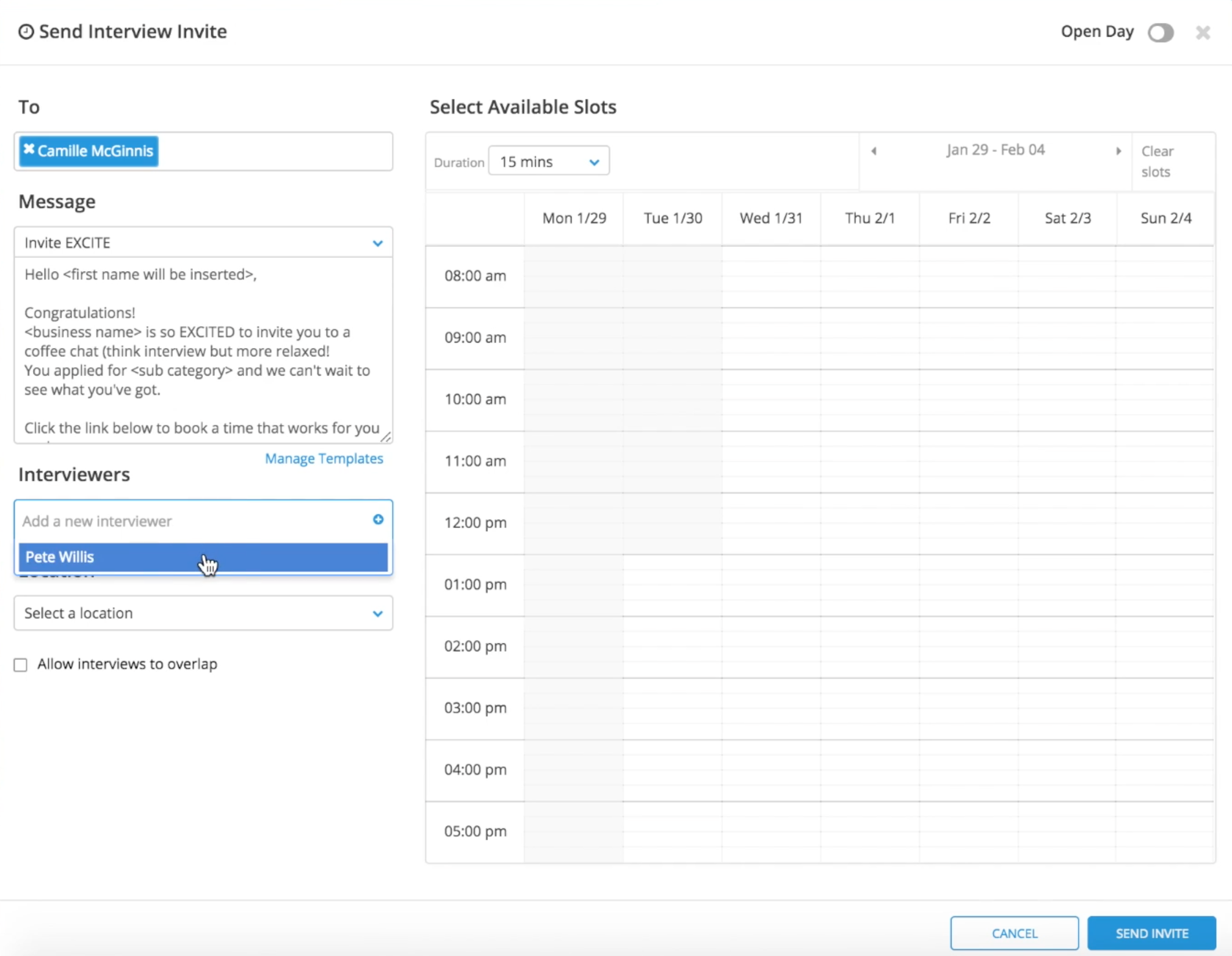Team Players: How to Spot High-Potential Employees
/Team Players: How to Spot High-Potential Employees and Take Productive Next Steps
by Cleo Clark, VP of HR Strategy & Development at Harri
This article originally appeared in the May 2018 issue of Hospitality Trendz.
The hospitality industry is built on people, which is why internal growth is the cornerstone of your restaurant or hotel’s success. If you are failing to promote from within, then you are doing a disservice to your staff and ultimately your business.
Some managers and owners make the mistake of giving promotions to those with tenure, but forget to consider if the respective employee is ready for the responsibilities that come with their new title. There are also cases of management pushing titles onto staff who have no desire to be promoted - which usually ends in terminations and hostile work environments.
As a business expands, the human resources practices must expand as well. Recognizing high-potential line-level employees (cooks, servers, front desk agents, etc.) early on will only help to cultivate the growth of your business as a whole.
So, let’s talk about a few attributes you should look for in that high-potential employee!
Passion:
Is your employee passionate about what they are doing? Employees who are passionate about their jobs are the ones who are usually extremely self-motivated and have a strong desire to succeed. This passion is also infectious and can have a lasting effect on other employees and the business as a whole. I have always found that an employee who has fiery passion is the one who is also reliable and will be consistent.
Great Attitude:
A “great attitude” does not always mean “happy all the time.” Rather, it implies that he or she has a “does whatever it takes” outlook while at work. Every day, service throws curveballs to line-level employees. Whether it’s an on-the- fly catering order in the middle of lunch service or the stove pilot decides to not light before peak dinner service, there are obstacles that can really test employees’ ability to keep calm in the midst of chaos. The most capable employees – those who overcome these obstacles – usually reveal themselves throughout their time working in a restaurant. Finding these employees is not difficult: it’s all about paying closer attention to your staff. Workers who deftly handle challenges tend to go above and beyond in other aspects of service as well. Maybe they cultivate regulars by remembering their names and orders, come in a little earlier, or stay later to get the job done. Positivity is definitely a plus, and if that comes with problem management skills and logical thinking in chaos – even better! These are the employees to watch.
Resourceful:
Is your employee resourceful? Can they look at a problem and find a quick-witted way to resolve it? Are they able to handle your guests with care and concern and find ways to immediately resolve their issues? Do they look at the issues and see solutions - not just problems? In today’s tough economic business environment, we are faced with so many rising costs. It is challenging to run a business in a financially feasible manner. We have all been in that situation where we have to schedule less employees and run tighter shifts. Having that “A-Player” employee working during that tough shift and knowing you can rely on them is such relief.
Exemplary Team Player:
All of your strongest staff should be team players. If you suspect that even one of them is not, it may be time to rethink your hiring strategy. As there are accessible systems to keep track of your employees' performance, your business is only as strong as your weakest employee. For the best ones to rise to the occasion, they must be surrounded by equally good workers. For a management potential employee, you need a team player who can teach others how to play the game. Keep an eye out for ambitious employees: those who go ahead of their stations and are able to help out others who might get in the weeds during a busy service. Hopefully, you will be able to recognize 1-2 employees with the ability to catch others when they fall, and hustle when their team is in need (which is most of the time). Exemplary team players will have good rapport with others, and team members will be able to give instances on when these people have stepped up to the plate. If you see certain employees flourish, especially under pressure, it would be smart to keep tabs on them.
Lastly...Do They Have A “Sponsor?”
As with any business, having sponsors in the hospitality industry can get top-performing employees to higher positions more quickly. Once you believe you have pinpointed one or more high-potential employees, speak to their supervising managers, staff they may have trained, and peers who have worked side-by- side with them. If any of these sponsors jump at the opportunity to vouch for them, it’s a very good sign. However, there is always a chance a manager might fear losing a strong team member, and deny an employee’s clearly high performance (fortunately, this is rare). Be mindful of this, and still be diligent about gaining multiple opinions, and always assure managers that if a leading team member is being promoted then you will allow ample time for them to train their successors. The last thing you need is a bitter manager on your hands.
Career Pathing (Succession Planning)
Now that you see potential in a line-level employee, it’s time to have an open discussion about the management position at hand. Have his or her current manager arrange a time to meet with you. Having coffee or a plain one-on-one works well for this instance, as long as it is a private conversation to gauge honest interest in the promotion. This conversation could go one of two ways...
1. The employee is elated that he or she has been presented this opportunity, and will happily begin the steps for manager training.
2. The team member may be reluctant to leave their team members behind, may have different career goals, or may refuse the position for monetary reasons. Lay out clear expectations, salary range, and benefits of the respective position, and be sure to give them some time to think about it (a week or so is good). The worst-case scenario is that the person turns down the position, and you have to begin the process again.











